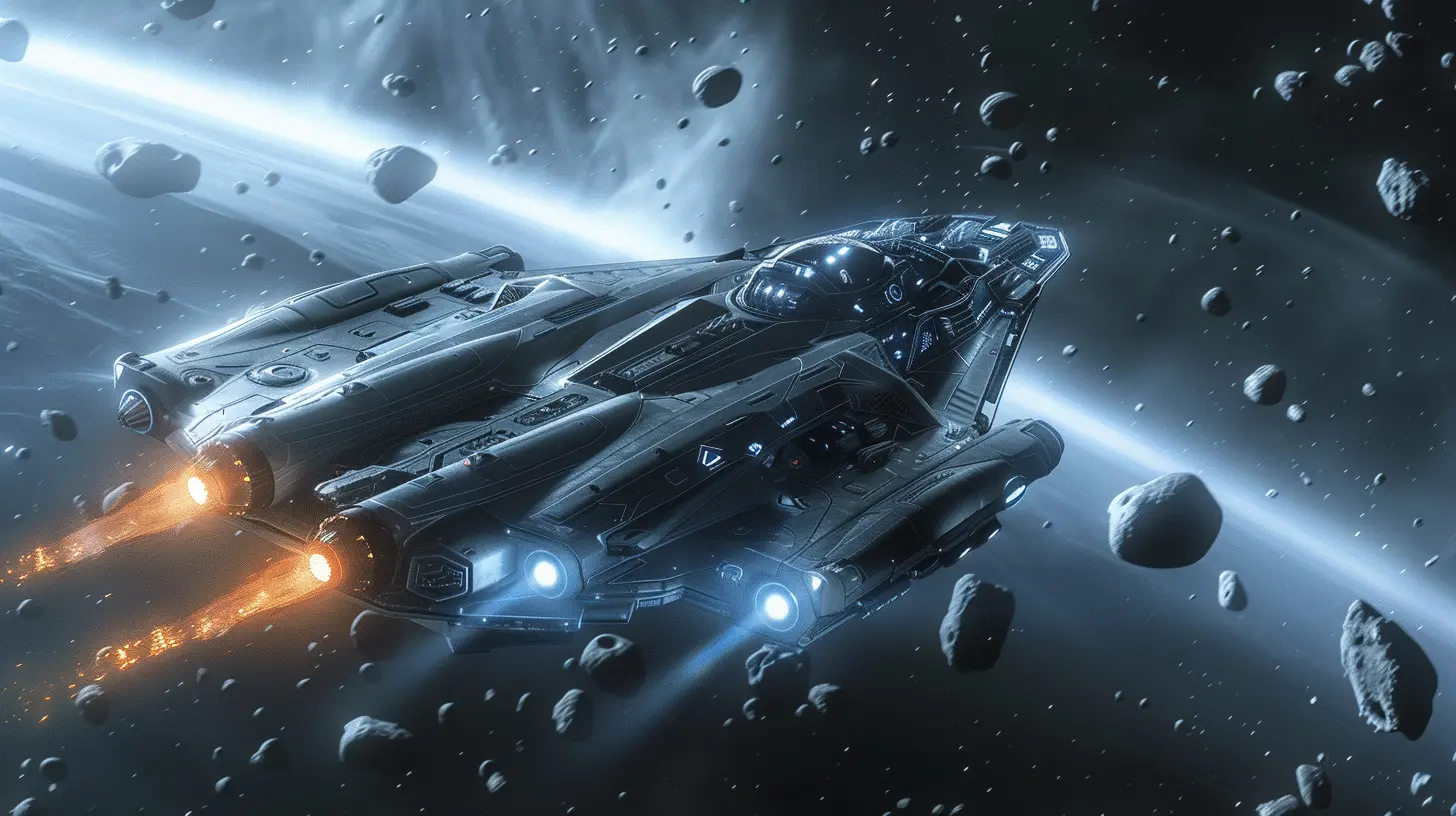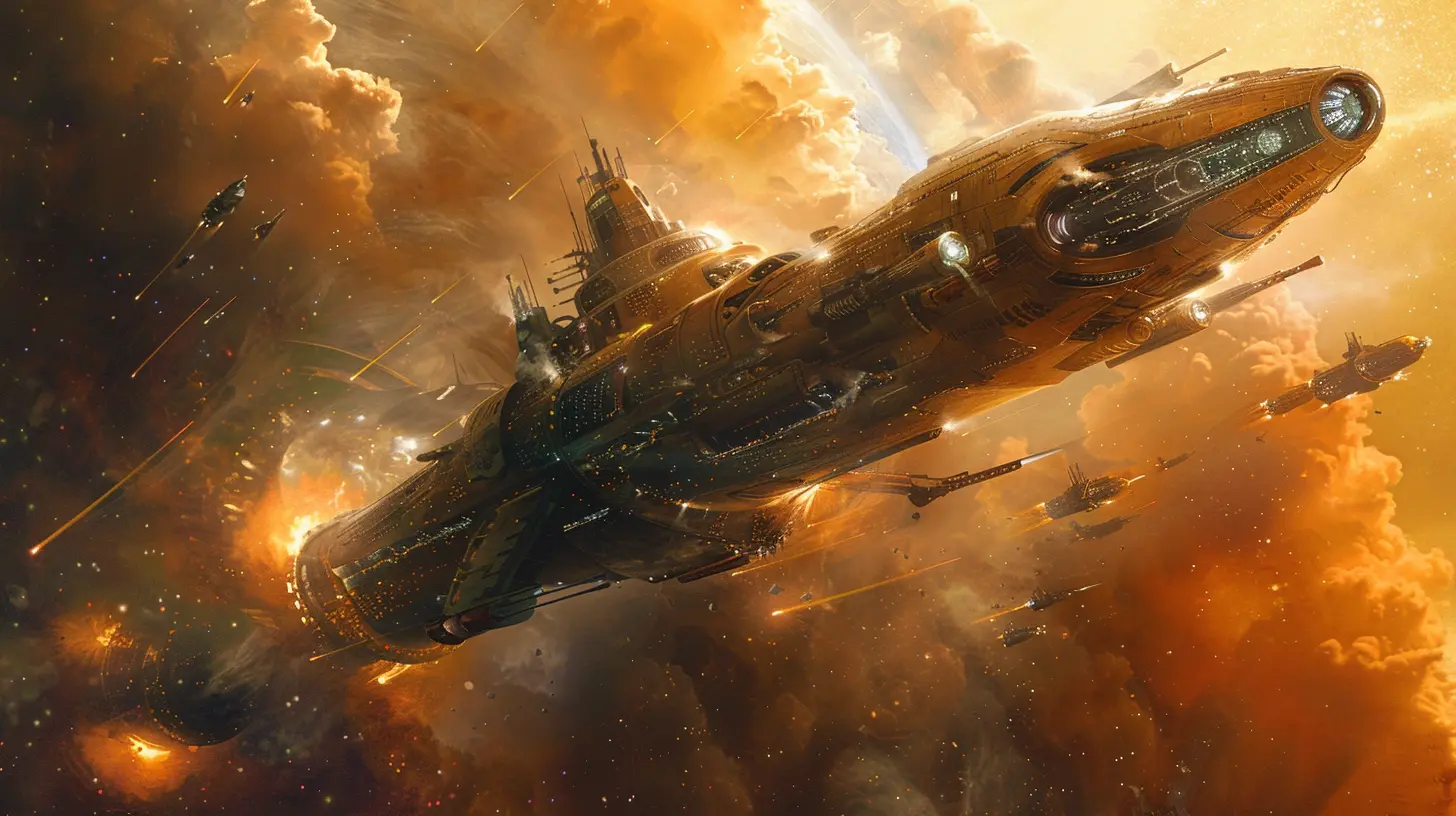Why Space Exploration Games Continue to Captivate Players
14 August 2025
If you've ever caught yourself staring at the night sky, wondering what’s out there, you’re not alone. That deep curiosity, that itch to know the unknown, is probably what first drew you to space exploration games. Picture this: you’re in command of your own spaceship, navigating through galaxies, discovering alien planets, interacting with strange lifeforms, and surviving the harsh void of space. Sounds thrilling, right?
Well, that's exactly why these types of games continue to pull players in — and why they’re not going out of style any time soon.
In this article, we’ll dive deep into the reasons why space exploration games have such a strong grip on gamers. Whether you're a hardcore sci-fi lover or someone who casually dips into interstellar ventures, there's something universally magnetic about these games.

The Unending Allure of the Unknown
Let’s be honest — humans are curious by nature. It's in our DNA to want to know more. When we look at the stars, we don’t see just dots of light; we see possibilities.Space is Infinite (Well, Practically)
In video games, space offers something no other setting truly can: the feeling of infinite potential. No hard and fast boundaries. Just an endless canvas for developers to paint entire galaxies, civilizations, and mysteries.For players, this means there’s always something new to discover. It’s a sandbox with literally no edges. Games like No Man’s Sky and Elite Dangerous thrive on this idea. One minute you’re scanning a lush alien world, the next you’re in deep space evading pirates or uncovering signals from an extinct race. It's a never-ending loop of discovery, and it’s addictive.
A Personal Journey Wrapped in a Cosmic Setting
One of the coolest aspects of space exploration games is how they tie grand adventures to personal stories. It’s not just about flying around and shooting lasers (though let’s face it, that’s fun too). It’s about the journey — figuring out your place in a vast universe.Whether you're playing as a lonesome pilot in Starfield, or leading a faction in Stellaris, these games give you the reins to write your own story. And because the scale is so massive, the emotional payoff is even bigger. When you finally land on that distant world or make a breakthrough in alien diplomacy, it feels huge — because you earned it.

Freedom Like No Other Genre
One thing that truly sets space exploration games apart from other types of games is the sheer freedom they offer. You’re not boxed into one path or storyline. You get to choose how you play.Want to Be a Trader? Go for It.
A Pirate? Why Not.
A Peaceful Explorer? Absolutely.
In games like EVE Online, your role isn’t scripted — you define it. That level of freedom is rare and deeply empowering. It creates a kind of personal attachment to the game world that’s hard to shake.
Immersive World-building That Blows Minds
Let’s take a moment to appreciate the insane amount of detail developers pour into these games. From intricate ship design and believable alien species to entire solar systems with realistic orbital mechanics — it’s wild how deep the rabbit hole goes.Real Science Meets Creative Fiction
The best space exploration games blend scientific realism with mind-blowing creativity. They’re grounded enough to feel believable, but imaginative enough to keep things exciting.Games like Kerbal Space Program even teach you real-world orbital mechanics — in a fun way, of course. Others, like Mass Effect, weave deep lore and geopolitics into their sci-fi worlds. It’s storytelling, science, and sandbox fun all rolled into one epic experience.

The Ultimate Escape
Look, real life can be a grind. Work, responsibilities, bills, the day-to-day slog — it gets old. Playing a space exploration game is like strapping yourself into a rocket and blasting off from all that. It's pure escapism.A Universe Without Limits
You’re not Bob from Accounting anymore. You’re Captain Bob, fearless commander of the Star Phoenix, navigating dangerous nebulae and negotiating peace treaties with insectoid emperors. That shift in identity and the ability to leave the mundane behind is hugely appealing.And let’s be real — when everything on Earth feels a bit overwhelming, escaping to the stars sounds like a pretty decent backup plan.
Community and Shared Discovery
Space games aren't just about solo adventures. The community around these games is often just as engaging as the games themselves.Multiplayer Magic
Take games like Star Citizen and EVE Online — they thrive on player interaction. Whether you're trading goods in a bustling hub or launching raids with your guild, the shared experiences elevate the excitement.It’s like being part of a massive, ongoing sci-fi story where the players write the plot. And when something major happens, like a massive space war or a new region being discovered, the entire community feels it. It’s collective storytelling at its best.
The Tech Just Keeps Getting Better
Part of the reason space exploration games keep us hooked is that they keep getting better. Better graphics, smarter AI, more detailed worlds — it's a snowball effect of awesomeness.Virtual Reality? Yes, Please.
Some games now let you strap on a VR headset and physically turn your head to look out your cockpit window. You literally feel like you're in space. That’s not just playing a game — that’s living it.Procedural Generation = Infinite Variety
The use of procedural generation means these games can create literally BILLIONS of unique planets, star systems, and experiences. No two players have the same journey. That level of unpredictability makes everything feel fresh, every single time you boot up the game.The Soundtrack of the Stars
Yeah, we’re going there. The music in space games? It’s next-level.Chill Ambience Meets Epic Scores
There's something about floating through the stars while an ambient synth track plays in the background. Or entering hyperspace to a booming orchestral crescendo. The music enhances immersion to the point where it feels like you're in a movie — and you’re the star.Games like Outer Wilds and Starfield absolutely nail this, making the emotional beats of the game hit even harder.
Nostalgia + Futurism = A Genre That Hits Both Sides
It’s kind of wild, but space exploration games somehow manage to tap into both nostalgia and futurism at the same time.Remember the Classics?
Old-school hits like Star Wars: X-Wing or Master of Orion laid the foundation. For many players, diving into a modern space game brings back the magic of those early experiences. At the same time, the genre looks forward, imagining what humanity could become.That mix of past and future creates a sense of timelessness. It's a genre that grows with you, always offering something new while reminding you why you fell in love in the first place.
The Philosophy of Space
Now I know this might sound a little deep, but stay with me.Space Games Make You Think
Beyond the lasers and dogfights, these games often explore big questions. What does it mean to be human? How do we handle first contact? What responsibilities come with technological power?Games like The Outer Worlds or Mass Effect don’t just serve up action — they serve up thought-provoking narratives that challenge your morals, your doubts, your vision of the future.
Add that to the interpersonal decisions, political conflicts, and existential dread of the void, and you've got a genre that offers not just entertainment, but meaning.
Accessibility and Genre Blending
Space games are more accessible now than ever. You don’t need a massive gaming rig to hit the stars. Many indie devs are creating bite-sized space experiences that pack just as much heart.From Hardcore Sim to Casual Fun
Whether you’re into deep strategy or just want a relaxing spacewalk, there’s something out there for you. Games like Among Us even made space settings mainstream through fun, simple gameplay.The genre’s ability to blend with others — RPGs, survival, horror, even dating sims — means it’s versatile and full of surprises.
Wrapping It Up: Why We Keep Going Back
So, why do space exploration games continue to captivate players? Because they hit all the right notes. They let us dream big, take control of our destiny, and escape the everyday. They wow us with gorgeous visuals, challenge us with tough decisions, and connect us with others across digital galaxies.At the end of the day, they tap into something deeply human — that relentless need to wander, discover, and understand the unknown.
And as long as that spark is alive in us, space exploration games will keep taking us to the stars and beyond.
all images in this post were generated using AI tools
Category:
Sci Fi GamesAuthor:

Emery Larsen
Discussion
rate this article
2 comments
Layne Elliott
Space exploration games spark our imagination and curiosity, offering vast worlds to discover and the thrill of the unknown, making them endlessly captivating for players.
December 25, 2025 at 3:55 AM

Emery Larsen
Absolutely! Space exploration games ignite our imagination, inviting players to embark on thrilling adventures in endless, uncharted worlds.
Ramona McCallum
Great article! It's fascinating how space exploration games tap into our innate curiosity and desire for adventure. The blend of vast, uncharted worlds and the thrill of discovery keeps players hooked. I love how these games encourage creativity and problem-solving while offering an escape from reality. Can't wait to explore more!
August 22, 2025 at 3:48 AM

Emery Larsen
Thank you! I’m glad you enjoyed the article and share the excitement about the unique blend of creativity and adventure in space exploration games. Happy exploring!


